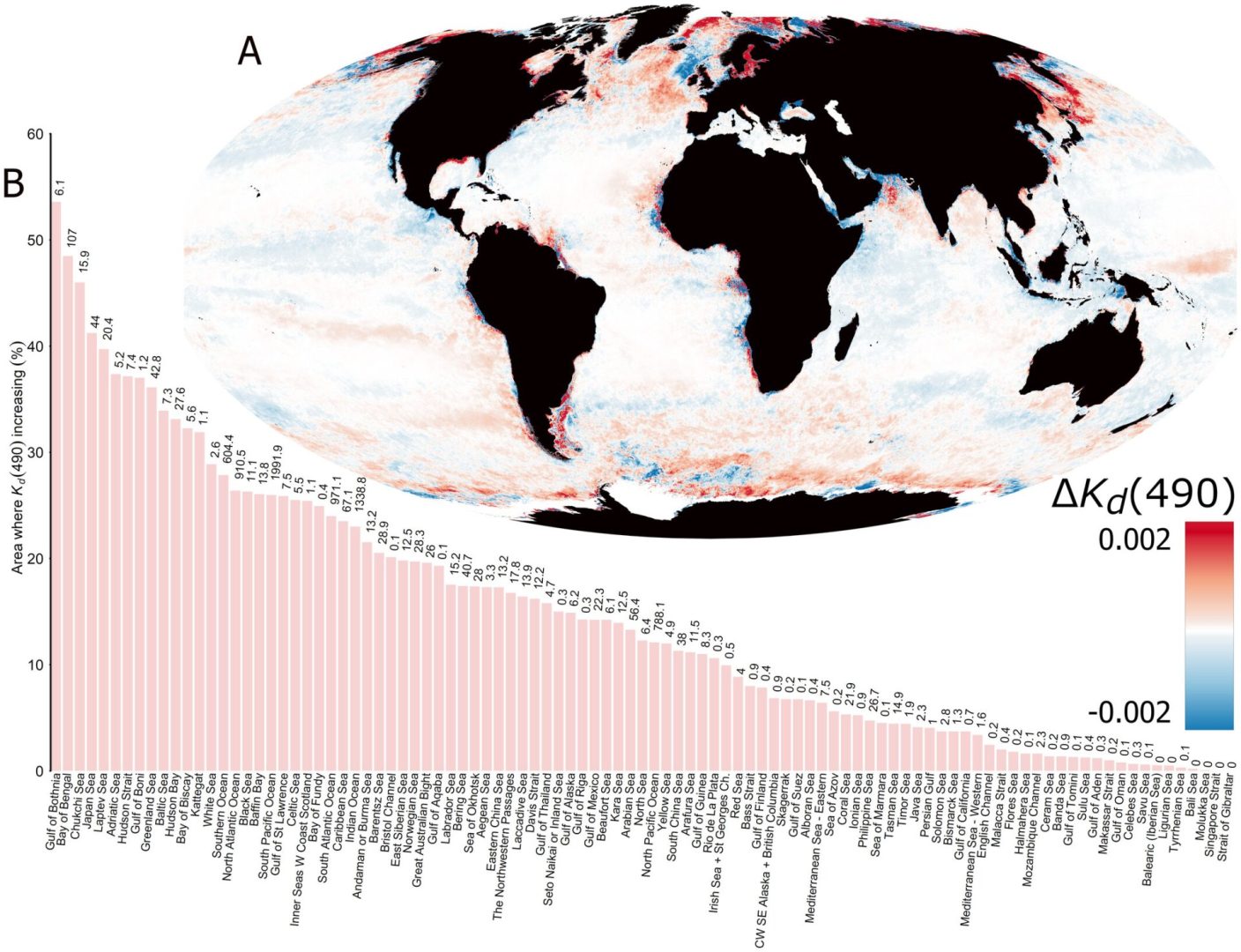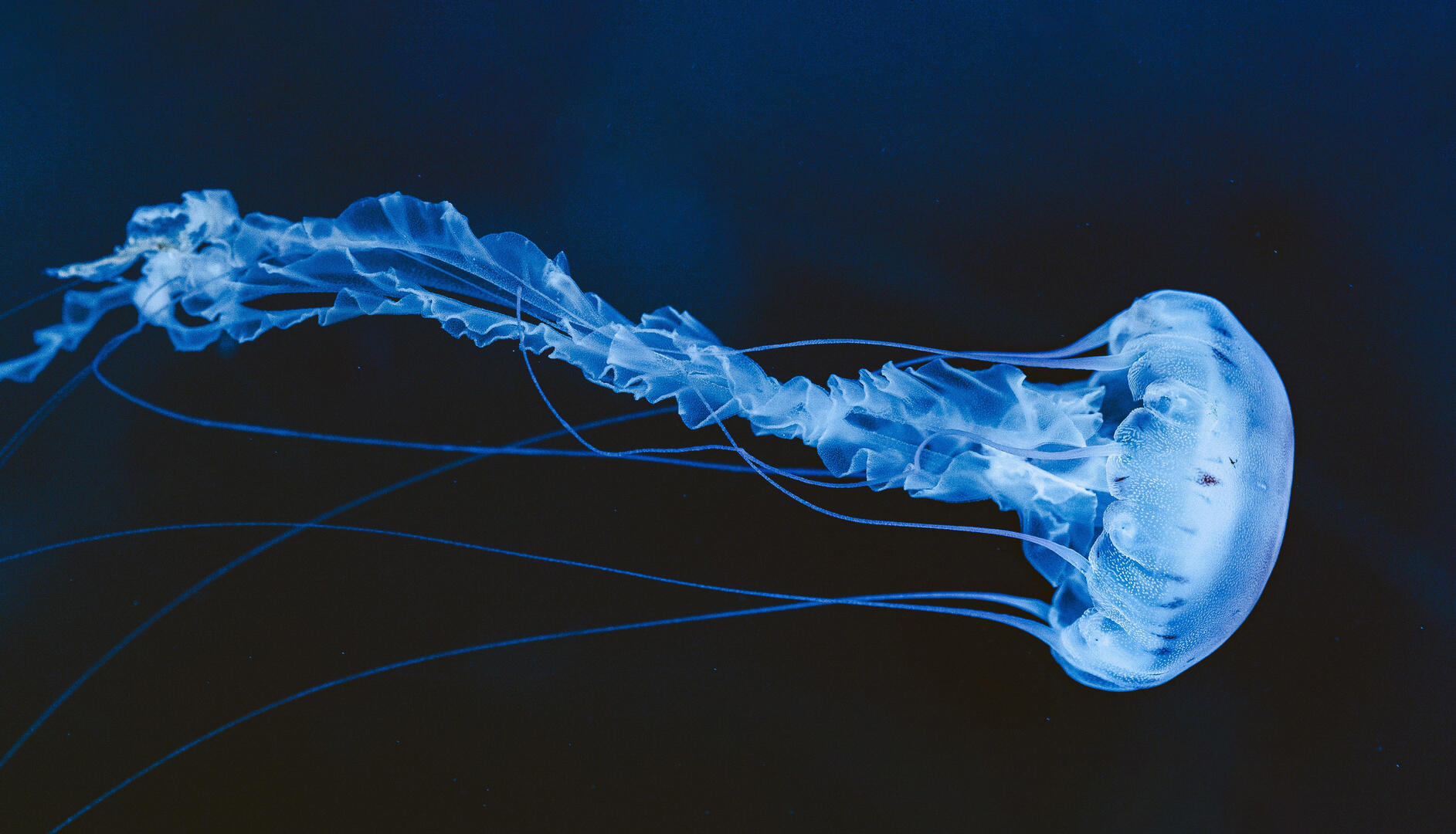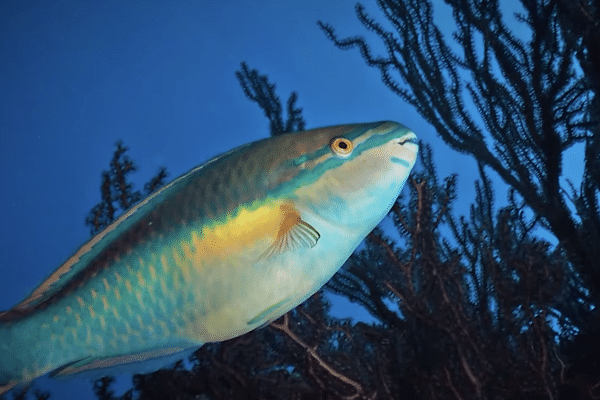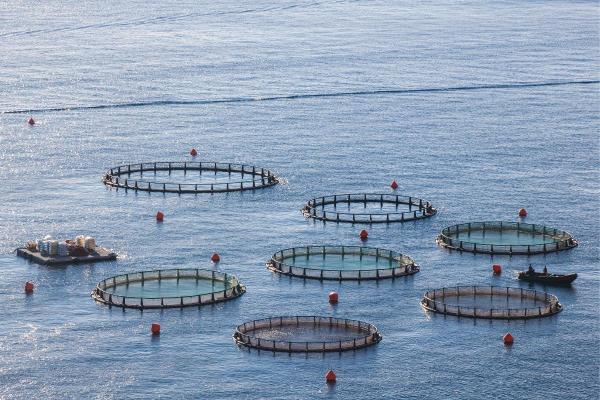Over the past twenty years, more than 20% of the world’s oceans have experienced significant darkening, warn two researchers from the University of Plymouth in the UK. This phenomenon is deeply disrupting ecosystems whose balance depends directly on light cycles.
Imagine, for a moment, that you’re a jellyfish. Every night, like millions of other jellyfish and aquatic species, you rise to the surface to feed on plankton. And every day, when the sun rises and lights up the ocean depths to around 200 meters, you descend back into cooler waters. You’re part of the “great vertical migration” that animates the seas on a daily basis.
But today, your internal compass is being scrambled. Instead of sunlight penetrating to 200 meters, it now stops at 150 meters. Near the coast, nighttime is no longer fully dark—city lights brighten your hunting grounds. Since your biological clock is driven by light, human influence on the ocean is completely altering your relationship with the world and your daily behavior—even though you don’t even have a nervous system.
20% of Oceans Are Getting Darker
This story might seem trivial, but changes in ocean brightness are drastically transforming marine ecosystems, warn the two Plymouth University researchers in their study published in Global Change Biology. After analyzing ocean brightness over ten years using satellite imagery, they found that 20% of the planet’s seas—over 75 million square kilometers—have darkened in the past two decades.
Ocean darkening occurs when the “photic zone” shrinks—the layer of the ocean where sunlight is strong enough for photosynthesis to occur. This zone usually extends to about 200 meters deep and is home to 90% of marine life. In 9% of the world’s seas, the photic zone has shrunk by at least 50 meters. In 2.6%, it has receded by more than 100 meters.

“If the photic zone shrinks by around 50 meters across large areas of the ocean, animals that depend on light will be forced to move closer to the surface, where they’ll have to compete more intensely for food and other vital resources,” explains Tim Smyth, one of the study’s authors. “This is a poorly studied form of habitat loss, which could trigger fundamental changes across the entire marine ecosystem.”
Darkening Partly Driven by Plankton
While the researchers primarily focused on documenting the phenomenon, they also proposed several possible causes. Most of the areas experiencing darkening are near the coasts, where the effect is most prominent, because the ocean’s color is directly linked to plankton. Globally, the amount of plankton is generally declining, but near coastal regions, scientists are observing an increase in nutrient levels—largely due to human activities such as agriculture. This nutrient influx stimulates plankton blooms, which in turn block sunlight from penetrating as deeply into the water.
Related: Are Marine Protected Areas Truly “Strongly Protected”?
The darkening is particularly severe in enclosed seas such as the Baltic Sea, where runoff from land brings nutrients and sediments into the water. Since the current isn’t strong enough to disperse this water into the rest of the ocean, plankton populations grow unchecked. However, the researchers emphasize that local factors differ by region, making it impossible for this study to pinpoint all the exact causes of the phenomenon.
Meanwhile, 10% of the Ocean Is Getting Brighter
The researchers’ findings go beyond the darkening of 20% of the oceans. In contrast, 10% of the world’s seas are actually getting brighter—mostly in offshore zones but also near parts of North America. The scientists don’t offer a direct explanation for this brightening but stress that any change in ocean light levels—whether an increase or a decrease—can significantly disrupt marine ecosystems.
Of course, this isn’t just about fish. “We depend on the ocean and its photic zones for the air we breathe, the fish we eat, our ability to mitigate climate change, and the overall health and wellbeing of the planet,” says Thomas Davies, co-author of the study. “Given all these factors, our findings are a genuine cause for concern.”
Source: natura-sciences




